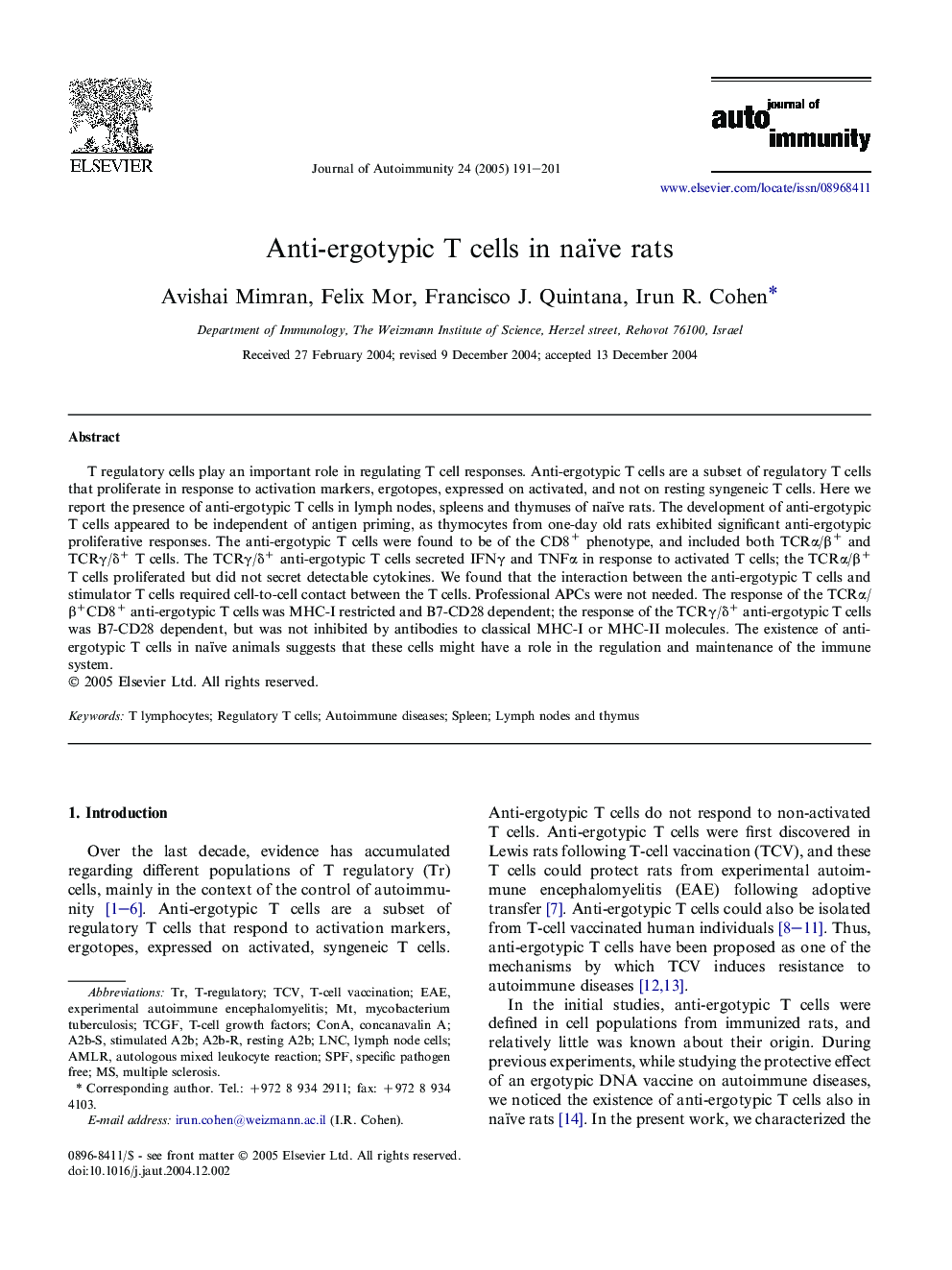| Article ID | Journal | Published Year | Pages | File Type |
|---|---|---|---|---|
| 9267926 | Journal of Autoimmunity | 2005 | 11 Pages |
Abstract
T regulatory cells play an important role in regulating T cell responses. Anti-ergotypic T cells are a subset of regulatory T cells that proliferate in response to activation markers, ergotopes, expressed on activated, and not on resting syngeneic T cells. Here we report the presence of anti-ergotypic T cells in lymph nodes, spleens and thymuses of naïve rats. The development of anti-ergotypic T cells appeared to be independent of antigen priming, as thymocytes from one-day old rats exhibited significant anti-ergotypic proliferative responses. The anti-ergotypic T cells were found to be of the CD8+ phenotype, and included both TCRα/β+ and TCRγ/δ+ T cells. The TCRγ/δ+ anti-ergotypic T cells secreted IFNγ and TNFα in response to activated T cells; the TCRα/β+ T cells proliferated but did not secret detectable cytokines. We found that the interaction between the anti-ergotypic T cells and stimulator T cells required cell-to-cell contact between the T cells. Professional APCs were not needed. The response of the TCRα/β+CD8+ anti-ergotypic T cells was MHC-I restricted and B7-CD28 dependent; the response of the TCRγ/δ+ anti-ergotypic T cells was B7-CD28 dependent, but was not inhibited by antibodies to classical MHC-I or MHC-II molecules. The existence of anti-ergotypic T cells in naïve animals suggests that these cells might have a role in the regulation and maintenance of the immune system.
Keywords
Related Topics
Life Sciences
Immunology and Microbiology
Immunology
Authors
Avishai Mimran, Felix Mor, Francisco J. Quintana, Irun R. Cohen,
